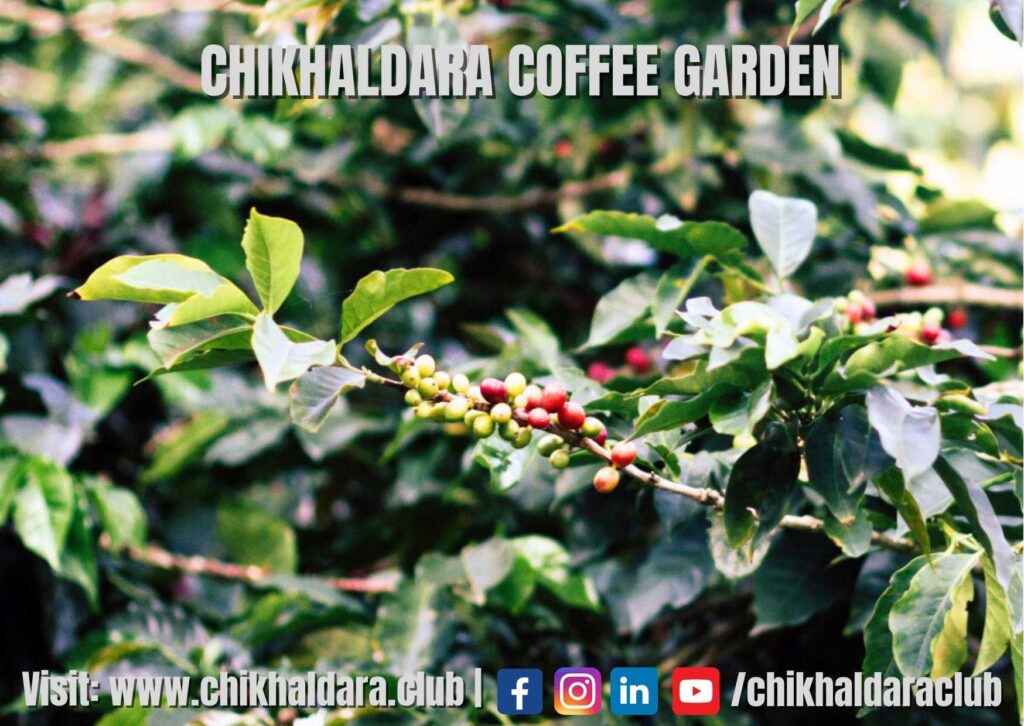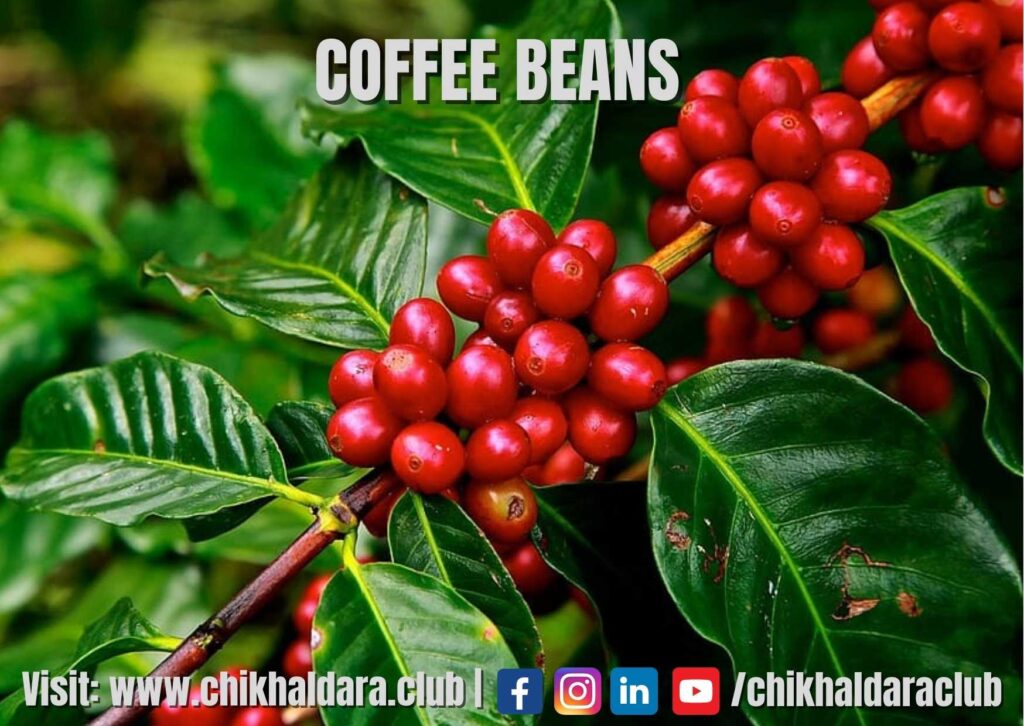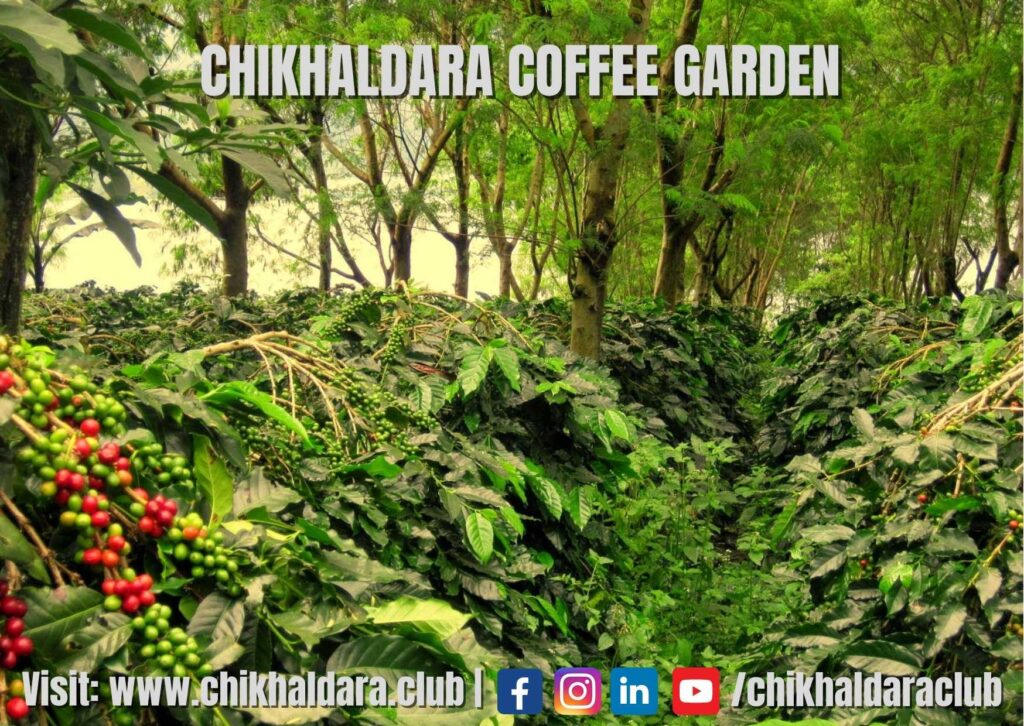Table of Contents
Chikhaldara Coffee Plantation is a picturesque garden located in the Amravati district of Maharashtra, India. It is known for its beautiful landscapes, dense forests, and coffee plantations. Coffee plantation in Chikhaldara has gained popularity in recent years due to the suitable climatic conditions for coffee cultivation.
Coffee Cultivation
Coffee cultivation in Chikhaldara is primarily done on the slopes of the hills, which provide the necessary shade and moisture for the coffee plants to thrive. The region has a tropical climate with cool winters and moderate summers, making it ideal for coffee cultivation. The altitude of Chikhaldara ranges from 700 to 1,100 meters above sea level, which further enhances the quality of coffee grown in the region.
The coffee plantations in Chikhaldara are typically small to medium-sized, managed by local farmers who follow traditional methods of coffee cultivation. Arabica and Robusta are the two main varieties of coffee grown in Chikhaldara, with Arabica being the dominant one. The coffee plants are grown in well-drained, sandy loam soil, and the farmers take great care in maintaining the quality of the soil through organic farming practices.
Coffee Harvesting
The coffee harvesting season in Chikhaldara usually starts in November and goes on till February. During this time, the coffee cherries are carefully handpicked when they are fully ripe. The cherries are then processed to extract the coffee beans, which are dried and sorted before being sent for further processing.
Chikhaldara coffee is known for its unique flavor profile, which is characterized by a mild acidity, medium body, and pleasant aroma. The coffee is often described as having notes of chocolate, caramel, and spices, making it a favorite among coffee connoisseurs.

Colonial Era Coffee Plantation in Chikhaldara
During the colonial era in India, particularly during the British rule, coffee cultivation was introduced in various regions of the country, including Chikhaldara. The British colonizers recognized the favorable climatic conditions of Chikhaldara for coffee cultivation and established coffee plantations in the region.
Coffee plantation in Chikhaldara during the colonial era followed large-scale commercial methods, with British plantation owners and European companies being involved in the management and operation of coffee estates. The British brought in modern agricultural practices, machinery, and technology to improve coffee production and export it to Europe.
The coffee plantation during the colonial era in Chikhaldara involved clearing of land, terracing of slopes, and planting coffee plants in rows. The plantations were typically monocultures, with coffee being the main cash crop. Large tracts of land were acquired and cleared for coffee cultivation, leading to deforestation and changes in the local ecosystem.

The colonial-era coffee plantations in Chikhaldara employed local laborers for plantation work, including planting, pruning, harvesting, and processing of coffee cherries. The workers were often subjected to harsh working conditions, long hours, and low wages. The British plantation owners held significant control over the workers, and social and economic disparities were prevalent.
The coffee produced in Chikhaldara during the colonial era was primarily exported to Europe, where it was in high demand. The British colonizers established coffee processing units in Chikhaldara to hull, dry, and sort the coffee beans before exporting them.
The legacy of the colonial-era coffee plantations in Chikhaldara can still be seen today in the landscape, infrastructure, and coffee cultivation practices in the region. While modern coffee cultivation techniques and practices have been adopted, the colonial-era influence can still be observed in certain aspects of the local coffee industry.
It is worth noting that the colonial era also had negative impacts on the local ecology, economy, and social structure. The large-scale clearing of land for coffee plantations led to deforestation, loss of biodiversity, and changes in the local ecosystem. The exploitation of local laborers and the concentration of land in the hands of the British colonizers also had social and economic ramifications. However, the history of colonial-era coffee plantations in Chikhaldara is an important part of the region’s heritage and coffee industry development.
Coffee Tourism
In recent years, coffee tourism has also gained popularity in Chikhaldara, with visitors being able to tour the coffee plantations, learn about the coffee cultivation process, and even participate in coffee tasting sessions. This has not only helped in promoting the local coffee industry but has also provided additional income opportunities for the local farmers.
Overall, coffee plantation in Chikhaldara has become an important agricultural activity, contributing to the local economy and providing high-quality coffee to consumers.

Coffee Plantation Visit in Chikhaldara
Indulge in the ultimate coffee lover’s getaway with our exclusive coffee plantation visit service in Chikhaldara! Join us for an immersive experience in the serene coffee estates of Chikhaldara and discover the fascinating world of coffee cultivation.
Our experienced guides will take you on a guided tour of our meticulously managed coffee plantations, where you can witness firsthand the various stages of coffee production. Learn about the history, techniques, and secrets of coffee farming as you walk through the lush green coffee fields, inhaling the intoxicating aroma of coffee cherries.
Get up close and personal with the coffee plants, and learn about the different coffee varieties grown in Chikhaldara, including the prized Arabica and Robusta. Understand the nuances of coffee processing, from harvesting to drying and milling, and gain insights into the sustainable and environmentally-friendly practices we follow.
Take part in a coffee tasting session where you can savor the rich flavors and aromas of freshly brewed coffee. Learn how to distinguish between different coffee profiles and appreciate the unique characteristics of Chikhaldara coffee. You can also purchase freshly roasted coffee beans and other coffee-related products to take home as souvenirs.

Capture stunning photographs amidst the breathtaking landscapes of Chikhaldara, with our coffee plantations as your backdrop. Immerse yourself in the tranquil beauty of nature and rejuvenate your senses with the invigorating aroma of coffee.
Whether you’re a coffee aficionado, a nature lover, or simply looking for a unique cultural experience, our coffee plantation visit service in Chikhaldara promises an unforgettable journey. Join us for an authentic and immersive coffee adventure like no other. Book your tour now and treat yourself to a memorable coffee getaway in Chikhaldara!
Frequently Asked Questions | FAQs
How can I get pure Chikhaldara Coffee ?
During coffee harvesting season, we procure freshly roasted pure coffee for our customers. You can contact us for buying pure coffee directly from coffee garden.
Which hill station is famous for coffee plantation in Vidarbha ?
The hill station in Vidarbha region of India that is famous for coffee plantation is Chikhaldara. Chikhaldara is a popular hill station located in the Amravati district of the state of Maharashtra. It is known for its picturesque landscapes, pleasant weather, and lush green coffee plantations. The coffee plantation in Chikhaldara is a major attraction for tourists who visit the region. The coffee produced in Chikhaldara is known for its rich aroma and flavor, making it a sought-after beverage for coffee connoisseurs.
Which hillstation is famous for coffee plantation ?
Chikhaldara is famous for its coffee plantation since British era. It is only coffee growing estate of Maharashtra state.

Pingback: Chikhaldara One Day Tour Package - chikhaldara Club